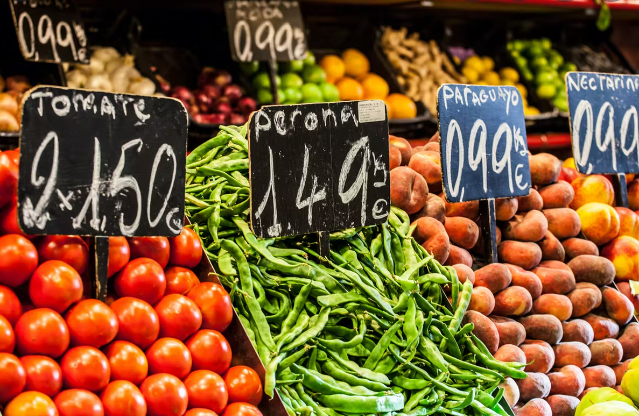June 19, 2025 | 18:18 GMT +7
June 19, 2025 | 18:18 GMT +7
Hotline: 0913.378.918
June 19, 2025 | 18:18 GMT +7
Hotline: 0913.378.918

Spending at grocery stores, where prices are also higher, rose 1.2% compared with April, and 8.7% compared with a year ago. Photo: Getty Images
The monthly reading on retail sales showed a 0.3% drop in May compared with April, the first decline in spending since December. More concerning is the details about where consumers are — and are not — spending money.
Spending at gas stations rose 4% in May from April, and is up 43.2% compared with a year ago, driven by sharply higher gasoline prices.
Spending at grocery stores, where prices are also higher, rose 1.2% compared with April, and 8.7% compared with a year ago.
Excluding spending at gas stations and grocery stores, spending at other retailers is down 1% compared with the previous month.
A strong job market and rising wages have kept consumers spending at a strong pace in recent months, but the shift to higher spending at gas stations and grocery stores is an alarm bell for the US economy. Consumer spending is responsible for about 70% of the nation's economic activity, and the retail industry overall has more jobs than any other business sector.
"Consumer sentiment is beginning to take a hit as everyday Americans feel the pinch of high prices and are reevaluating their spending habits," said Marwan Forzley, CEO of Veem, a payment provider for small businesses. "If this continues, businesses could be affected by depressed consumer spending and dampen economic forecasts for months ahead."
Part of the decline in spending was money spent at auto dealers. Consumers spent 4% less at car dealers in May than they did in April. A shortage of computer chips and other parts has limited production at auto plants, and therefore limited the inventory of cars consumers might want to buy. The inventory shortage has also fed a sharp rise in car prices, which could be pushing some consumers out of the market.
Excluding spending at auto dealers, gas stations and grocery stores, the spending at other general retailers was down only 0.1% compared to April. Many economists said that spending wasn't too bad, considering the inflationary pressures faced by consumers.
"Given all the negative economic news and financial pressures that are heaped upon consumers, May's retail sales numbers held up relatively well," wrote Neil Saunders, managing director of GlobalData in a note Wednesday.
The retail sales report focuses mostly on the purchases of goods, not services, such as airfares or movie tickets or other forms of entertainment. And there are indications that demand for travel and movies are exceptionally strong currently, as consumers shift from spending on goods to spending on services they were reluctant to use earlier in the pandemic.
Spending at restaurants is about the only thing considered a service tracked by the retail sales report, and it was fairly strong, posting a 0.7% increase compared to April spending, and a 17.5% gain compared to a year ago.
Still, Saunders said that since the overall rise in retail spending is less than the pace of price increases overall, it shows that consumers are pulling back on the volume of goods they're buying, even if the amount they're spending is holding up.
"While the consumer still has spending power, this is neither unlimited nor unaffected by wider economic concerns," he wrote.
The report comes on the second day of a two-day meeting of the Federal Reserve. The central bank is considering how much it should raise rates as a way of cooling spending in an effort to rein in inflation.
(CNN)

(VAN) Poultry production in Poland, which has only started recovering from devastating bird flu outbreaks earlier this year, has been hit by a series of outbreaks of Newcastle disease, with the veterinary situation deteriorating rapidly.

(VAN) Extensive licensing requirements raise concerns about intellectual property theft.

(VAN) As of Friday, a salmonella outbreak linked to a California egg producer had sickened at least 79 people. Of the infected people, 21 hospitalizations were reported, U.S. health officials said.

(VAN) With the war ongoing, many Ukrainian farmers and rural farming families face limited access to their land due to mines and lack the financial resources to purchase needed agricultural inputs.

(VAN) Vikas Rambal has quietly built a $5 billion business empire in manufacturing, property and solar, and catapulted onto the Rich List.

(VAN) Available cropland now at less than five percent, according to latest geospatial assessment from FAO and UNOSAT.

(VAN) Alt Carbon has raised $12 million in a seed round as it plans to scale its carbon dioxide removal work in the South Asian nation.